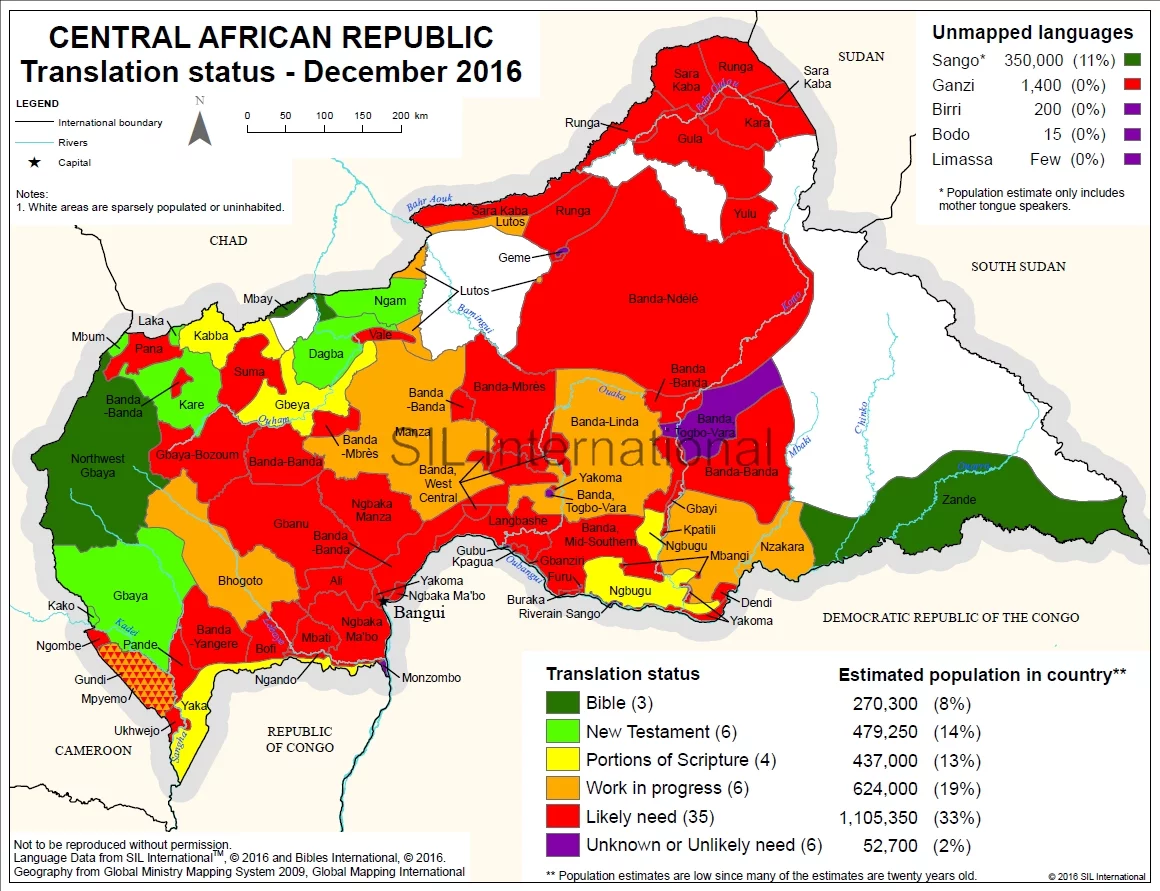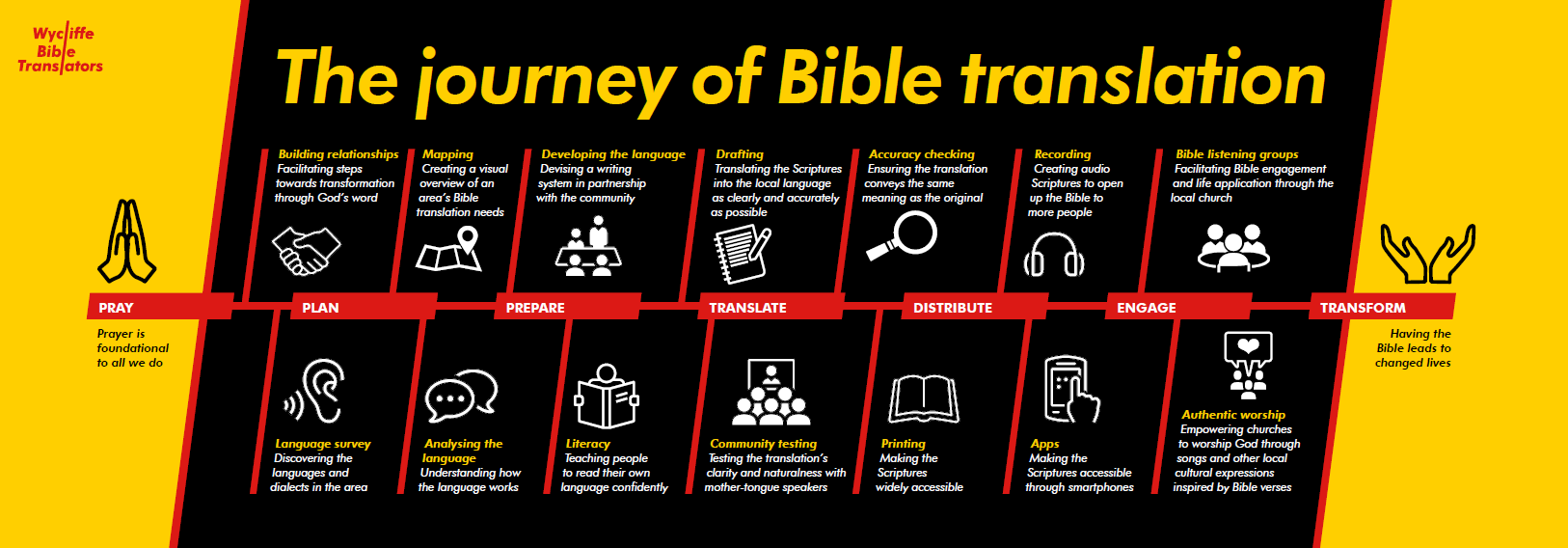‘It is important in the work of Bible translation to help everyone know where the language is spoken’
The mapping team works closely with the language survey teams. ‘Sometimes we prepare maps for survey teams before they go to an area, to help them find where they are going,’ Eva explains. ‘But mostly we collect information from the survey teams.’
Mapping is done before translation starts, and gives translators a clear picture of where people live. ‘It is important in the work of Bible translation to help everyone know where the language is spoken,’ Marcus says. ‘It helps people make strategic decisions about translation projects. Our maps are often used in materials that go out to people who pray for the people groups. We are also working to create maps that show the Bible translation status (like the map of Central African Republic above) as well as many other indicators for each language area.’
These maps are invaluable in the process of planning translation work and making decisions about allocating resources. However, they are not just about translation. Maps are also valuable for our parallel literacy and Scripture engagement work.
‘The maps are used throughout all the different stages of Bible translation,’ Eva observes. ‘And then also for distribution of the translated Bible and in evangelism. Knowing that there are people from the same language groups living in a few different places, sometimes in different countries, enables us to distribute the translated Bible to people speaking that language as widely as possible.’
The language maps are also used by Christian radio stations – like the Far East Broadcasting Company (FEBC) – so that they can know which language to use when broadcasting to different areas. Often these radio broadcasts may be the only way many people will hear the Bible.
‘Maps are used throughout all the different stages of Bible translation’
The maps our mapping team produces are generally considered to be the most authoritative language maps available. And are used by both Christian and secular organisations around the world.
‘I think the high standards of the mapping work we do helps people from many different religions respect Bible translation work. I also helps point people to God,’ says Marcus. ‘By producing maps that are very comprehensive, I believe we earn respect for our work as people who care about minority groups, even from those who may not believe in the Bible.’




